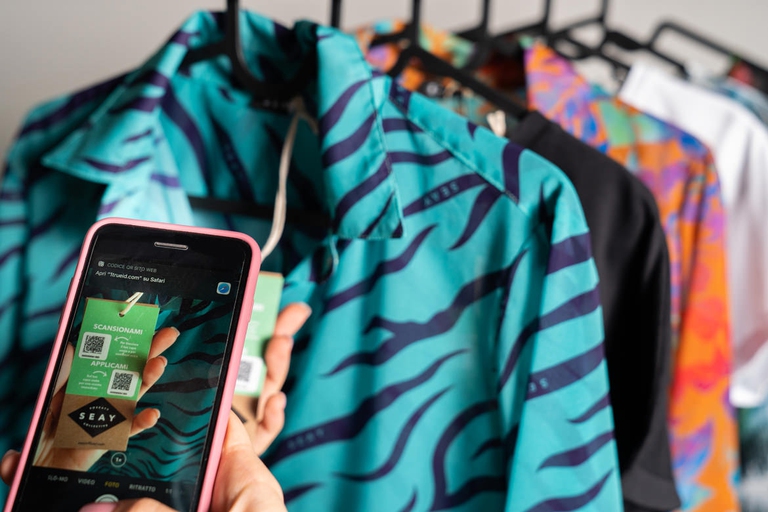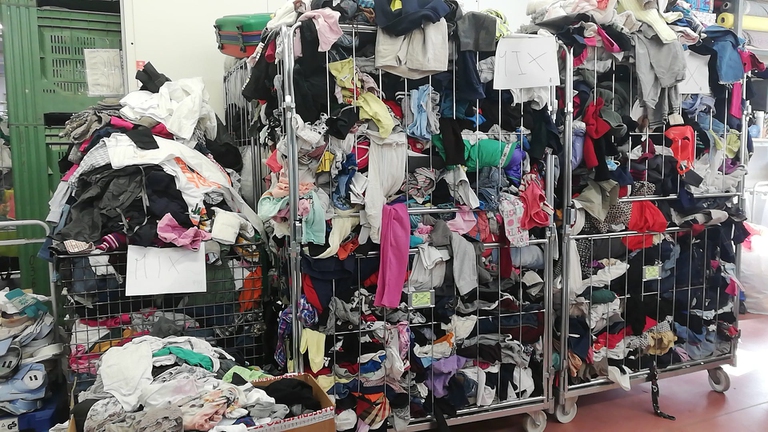https://www.lifegate.it/seay-modello-re3
- |
Seay is a brand that responsibly produces beachwear and clothing for water sports, and, addressing sea lovers, pays particular attention to the protection of this environment.Born in 2019 from an intuition of Alberto Bressan And Simone Scodellaro with the aim of contributing to the development of a fashion system with reduced environmental impact, Seay implements virtuous behaviors starting from the reduction of plastic and microplastic in its garments:its commitment ranges from the use of certified recycled materials to the valorisation of second-hand garments, the adoption of a short supply chain and the commitment to raise consumer awareness on environmental issues.
The startup also came up with Re3, a circular economy business model that guarantees reuse and traceability of used garments, designed to reduce the impact on the environment of the fashion sector and reshape the distinction between what, in the textile sector, is legally defined as good or waste.

Process sustainability
Synthetic fiber garments are made with 100 percent recycled polyester, which allows us to reduce the consumption of virgin PET from fossil sources, and with recycled polyamide, a product obtained from recycled nylon with high technical and aesthetic qualities.The cotton is organic and certified and guarantees compliance with environmental and social criteria for the entire textile fiber supply chain.The startup has a very short production chain and its suppliers are mostly located at a geographical distance of less than 100 kilometers from its headquarters.For distribution, Seay relies on a logistics partner for deliveries whose emissions it measures and compensates, so as to be climate neutral.Him too packaging they are certified biodegradable and compostable, capable of becoming organic compost following their natural degradation process.

Wetsuits in Yulex, the natural vegetable rubber
In January, Seay will launch the first wetsuit produced in Yulex, a natural rubber, rather than traditional neoprene, a non-renewable material left over from synthetic rubber.Yulex is a plant-based material that guarantees high technical performance and at the same time allows reduce CO2 emissions of the production process by up to 80 percent.The raw material necessary for its creation is extracted in small quantities from hevea trees which produce rubber for thirty years and absorb carbon for their entire lifespan.Furthermore, the plants grow in forests FSC certified, which allows us to create products in an environmentally and socially responsible way without harmful allergens and contaminants.All the details of the garment are made of recycled materials, including labels and zips, and the packaging is made of certified organic and compostable material.
Re3 patented innovation:Re-sell, Re-use, Re-generate
To reduce the consumption of raw materials and its environmental impact, encouraging customers to do the same, Seay uses the model D3 patented in collaboration with the social cooperative Together of Vicenza and the company Eurotexfilati.Thanks to this system, the Seay customer, every time he purchases an item, receives a green bonus which gives the right to one discount of 20 percent if you re-send to Seay a used item of the same product category as the one purchased (you have 30 days to do so).Once the necessary checks have been carried out on the returned item, Seay re-credits the customer with the value equal to the agreed discount.
Each item returned by customers is identified via a QR code which allows us to identify its origin and trace its destination, ensuring transparency and compliance with waste legislation.In this way the customer can follow the new life of the garment he has delivered, so as to understand which path he has taken.

The Insieme cooperative proceeds with the registration of every single garment and a qualitative inspection that defines its future destination.Depending on the aesthetic and functional conditions, the garment is selected and sanitized for the resale (Re-sell) at your second hand shops or for the donation (Re-use) to people in difficulty, in agreement with social services.The proceeds from the sales are used by the cooperative to cover the costs incurred for the management of the model itself.The garments that are no longer wearable, however, are divided according to the yarn they are made of and sent to Eurotexfilati which transforms them into regenerated yarn (Re-generate) to be used in the production of future clothing collections.
Seay is able to extend the life of used items that it receives, thus lightening the exploitation of raw materials and at the same time reducing the environmental footprint of the products.Citing a study published by Wrap in 2014, the startup considers that by extending the life cycle of the clothes we already own by 9 months, we can contribute to reducing the environmental footprint of our wardrobe by around 30 percent in terms of CO2 emissions , water consumption and waste production.It is no coincidence that the Re3 model has also been implemented by other large companies, demonstrating that a virtuous circular production and consumption system is also possible on a large scale.
Seay is one benefit company.In 2021 it was certified B-corp and entered theLifeGate Way ecosystem, the subsidiary of the LifeGate group dedicated to naturally sustainable startups.

